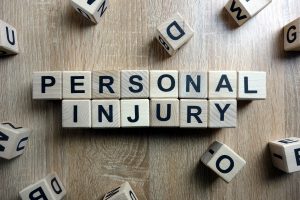What to Expect in a Personal Injury Deposition
 A personal injury action involves many steps and stages, but one of the most anxiety-producing phases is deposition. However, an effective deposition is crucial to the outcome of your case, and there is no need to stress over it if you go in thoroughly prepared. Knowing what to expect is one of the best ways to ease your fears.
A personal injury action involves many steps and stages, but one of the most anxiety-producing phases is deposition. However, an effective deposition is crucial to the outcome of your case, and there is no need to stress over it if you go in thoroughly prepared. Knowing what to expect is one of the best ways to ease your fears.
What is a deposition?
Depositions typically occur after the filing of a personal injury lawsuit, but prior to a trial. They fall during the discovery phase of a case, when each party’s attorney collects as much information as possible. The defendant’s attorney will almost always want to depose the plaintiff, as well as any important witnesses, to get sworn testimony regarding the details of a case. This testimony goes on record and can be used in the event the plaintiff or witness later changes their testimony during trial.
During a deposition, the other party’s attorney asks you questions about your case to gather as much information on the facts, details, and circumstances. Depositions usually take place in an attorney’s office – not a courtroom – and you’ll be notified of the date, time, and place in advance. You’ll be joined by your attorney, the other party’s attorney, and a court reporter.
While you’re deposed, you are under oath and must answer the questions truthfully and to the best of your ability. The court reporter’s job is to record everything said during the deposition, which means everything said is admissible in court later. Participation in a deposition is mandatory, and refusal to participate generally means your case won’t move forward.
What type of questions can I expect at a deposition?
In most cases, a deposition will start off with benign questions, like your name, date of birth, educational background and work history. These are meant to gather background information and help you get comfortable. Next, you’ll be asked questions specific to your case. For example, if you were involved in a car accident, you might expect questions like the following:
- What were you doing the day of the accident?
- When and where did it occur?
- Who was driving? Was anyone else in the car?
- Can you describe what happened?
- What steps, if any, did you take to avoid the accident?
- Where were you and any passengers sitting?
- Were there any witnesses to the accident?
- Did you lose time from work for your injury?
- What is the nature of your job?
- Did you seek medical treatment for your injury?
- What is the long-term outlook for your injury?
- Have you been injured before?
- Have you filed an injury claim or lawsuit before?
As you can see, depositions can get into a lot of detail, so it is important to be prepared. Experienced personal injury attorneys understand how to prep clients so they walk into a deposition feeling assured. They also know when to object to certain lines of questioning when necessary to ensure a fair trial later.
The injury lawyers at Warren & Kallianos, PLLC understand the importance of depositions and how they can affect the outcome of your personal injury case. We will represent you and ensure you walk in prepared and confident. Get in touch with us today to schedule a consultation in our Charlotte offices. Call us at 704-377-7777 or complete a contact form at your convenience.

At Warren & Kallianos, we believe in the importance of working directly with our attorneys, Jeff Warren and Chris Kallianos. When you work with our firm, Jeff and Chris are always accessible to you throughout the progress of your case.
Read more about Warren & Kallianos, PLLC
